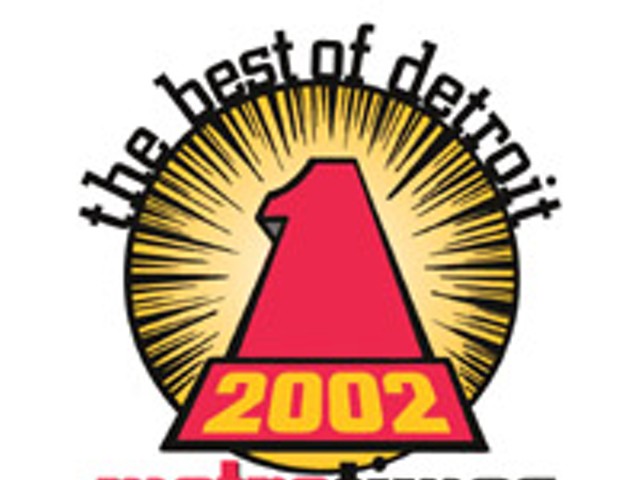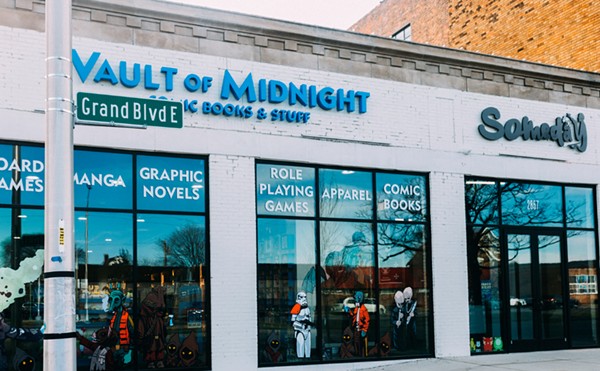The Threepenny Opera — with music by Kurt Weill and text and lyrics by Bertolt Brecht — is currently jostling the Avon Theatre's audiences, using the Marc Blitzstein (The Cradle Will Rock) translation and adaptation. Back in the early 1930s, Brecht adapted Elisabeth Hauptmann's translation of John Gay's The Beggar's Opera (which opened in London in the early 1700s as a satire of Prime Minister Robert Walpole as Macheath, while mocking Italian operatic conventions). Setting his tale in 1830s pre-Victorian London, England, Brecht turned The Beggar's Opera into The Threepenny Opera (inexpensive enough for even a beggar to afford). Against the backdrop of the growing corruption of Germany's Weimar Republic just before Hitler came to power, Threepenny became a hyper-popular theatrical revolution: Brecht's Marxist ideals woven within the seedy plot equalized all classes under the same cynical and corrupt light. Brecht and Weill shook up the operatic framework by changing the typical plot progressions and creating music that was more digestible and entertaining for the masses. The play's gritty plot feeds on bribery, extortion and a mise-en-scène imbued with an artist's optimistic melancholia, which lives somewhere between romance and betrayal.
As the story goes, J. J. Peachum controls all the beggars in London under a veneer of good will, and all is well until Peachum's daughter, Polly, falls under the spell of London's most loved and dreaded gang leader, Macheath.
"I don't think that it's important that it's set in London. I think they say it's London, but it's not London. It's a disguise," says director Stephen Ouimette, who has found the music appealing ever since his teens. "It's always been in the back of my brain ... it just spoke to me ... a lot of people feel the same way."
Most are familiar with Bobby Darin's hip-swingin', finger-snappin', radio-friendly version of "Mack the Knife," but Weill's original orchestrations creep up on you like a mugger with a smile. Threepenny's songs are saturated with a haunting barroom simplicity in a stew of primal emotions you can't seem to shake no matter how much money you make, or how much fun you're having. Because the songs are paced from a slow walk to a quick trot, they tend to fit in easily with the rhythm of the dialogue, as well as linger on long after the music ends. Although having studied with classical composers Englebert Humperdink and Ferrucio Busoni, Weill was drawn to the immediacy of jazz, and at the same time rebelled against the inaccessibility of opera, striving for a mass appeal in his music, but without condescension.
"The music is so eclectic ... even though people think of it as sort of dissonant, atonal ... it's not, it's very melodic. Most of it's quite beautiful," says Ouimette.
"Brecht always maintained that it should be a poor theater company doing the best it could with what it had, and so that was sort of the starting point ... it not only is a satire of opera and politics, but it also, I think in some ways, is a satire of theater."
Ouimette has tried to honor what was in the text, without having to give a history lesson on the Weimar Republic in the late-’20s.
"But what we did, which maybe is not apparent … we built very little, we used what we might find in the theater. I mean we were way way under budget. I know the irony of doing a play about a poor theater company doing the best they can in one of the richest theaters in the country. I thought if we could pull it off and not look like we spent millions of dollars on it — it was a plus."
While the audience waits in the air-conditioned Avon Theatre, sitting in red-velvet seats under crystal chandeliers, an unseen piano man practices "Mack the Knife" — dramatic, slow, imperfect — until a man in tattered clothing bursts through a side door and pushes his way up to the stage where his shouts become a song, about a man, or a knife, damaging women around London. A woman behind me asks, "Is this supposed to happen?"
"I wasn't trying to fool anyone with that," says Ouimette. "Members of the audience have tried to stop him, because they feel invaded in this safe little experience of theater. If they buy it — and some of them, a lot of them, do — it makes the point."
In the context of Stratford, where ticket prices are far from three pennies, an opera about beggars is protected from the "homeless" by the well-intentioned bourgeoisie. Stratford theatergoers unfamiliar with Threepenny's history and unsavory subject matter may be put off by their My Fair Lady musical expectations.
Ouimette is banking on that audience: "I think those are the people that should see it. It's not what they expected, but they stay. This piece has always been problematic that way — it's always been called box-office poison."
At the same time, what about someone like myself, coming from Detroit, never having seen the play performed before but well aware of the music and Brecht's text? I'm expecting a performance with a dark undercurrent that mirrors the lyrics and tone of songs I've been listening to for years, but it's just not there.
"I think one of [Brecht's] primary intentions was to entertain. I mean, the image we had was a pretty cake with nice icing, but if you just scratch the icing, there's rotting meat, so that you have to put a happy face on ... so what you're actually singing about is quite ugly."
In choosing not to play to the inherent darkness of this box-office poison, Ouimette positions the production in a middle-ground limbo — still too much bribery, debauchery and cynicism for many fans of on-stage musicals, but not enough of a bite for others. However, even if it’s pure entertainment you’re after, the piece suffers from inconsistencies in the players’ vocal abilities and the depth of acting performances. This could be partly the result of cross casting (members of Threepenny are also performing in My Fair Lady and The Scarlet Pimpernel, as well as Shakespeare productions).
"I don't know a theater company in the world that can jump around like that, but that's what you're given, so that's what you have to [work with]," Ouimette confides.
Despite the inconsistencies, Stratford's Threepenny Opera is worth the trip.
On the other side of the Avon Theatre is Stratford's newly constructed, and much needed, fourth venue, the Studio Theatre: an intimate thrust stage made to give voice and action to more contemporary works and playwrights. Currently finishing up its North American premiere there is a piece whose adaptation into English was commissioned by Stratford: The Fellini Radio Plays.
Before Federico Fellini began carving his cinematic signature into film history, he wrote scripts for Italian radio during the dark years of World War II. The scripts were recently found by Italian director Idalberto Fei, who won the Prix Italia in 1999 for directing one of them, Fellini's Unscheduled Programme No. 7. Damiano Pietropaolo, head of Radio Arts and Entertainment for CBC radio, translated and adapted the scripts into a three-part theatrical piece, directed by Fei, and presently on the Studio stage.
It's easy to see the seeds of a Fellini-to-be within this mélange of comedia del arte, parables and exercises of the imagination pumped to life by the heart and soul.
The longing, colorful chords of an accordion travel from one side of the stage to the other, tying a musical ribbon around "Love Letters ... a story as old as the sun." Adrianella and Roberto are a young couple, deeply in love, but they have no money. Roberto decides he must go to the big city to make enough money for a house and a life together. He'll be gone for a very long time, a year or more. Adrienella decides they must write to each other every day, but since neither of them knows how to write, they'll send a blank sheet of paper — and as Adrienella tells him, "... on it, we will be able to write the most beautiful, loving words."
In "A Special Broadcast," Fellini's mind plays with abstractions like a child bouncing imaginary Ping-Pong balls off of the noses of invisible clowns. Listeners continue to send in letters, challenging the radio Fellini's audio abilities, but he can't be stumped. Whether he's asked to broadcast a dialogue between two fishes or answer unanswerable questions like, "Where do sounds go when their echo is heard no more?" he perseveres with an excess of ego and alchemy that will leave you laughing, dancing and wanting more, just as Fellini the filmmaker did.
But hurry! You only have a couple of chances left to plan an impromptu road trip to see The Fellini Radio Plays (coupled with Ian Ross' Bereav'd of Light). Its final performance is Aug. 25 — and try to catch the special Studio showing of Fellini's film Roma on the 26th while you're there. But there's still plenty of time to see The Threepenny Opera, which runs to Nov. 2. Call 800-567-1600 or go to www.stratfordfestival.ca.
Anita Schmaltz writes about film and performance for Metro Times. E-mail her at [email protected]




